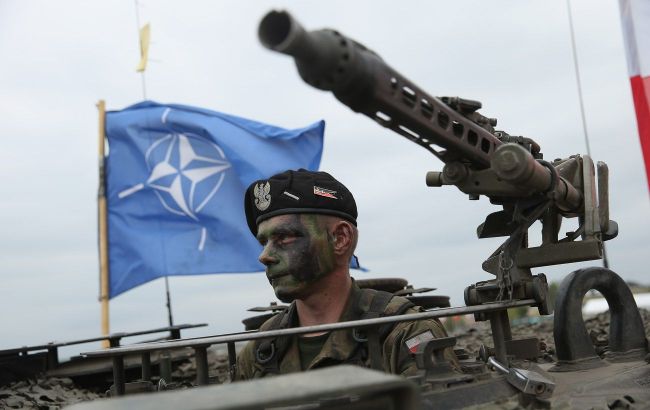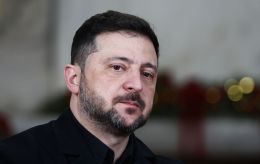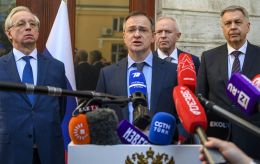Russia could strike NATO sooner than Europe expects – ISW
 Service member of NATO Joint Forces (Illustrative photo: Getty Images)
Service member of NATO Joint Forces (Illustrative photo: Getty Images)
The Kremlin is intensifying sabotage and intelligence operations across Europe. Russia could pose a serious threat to NATO much sooner than many European capitals anticipate, according to a report by the US-based Institute for the Study of War (ISW).
European officials continue to record an increase in both covert and overt Russian attacks against European countries.
This confirms the ISW's assessment that Moscow has entered the so-called Phase Zero — a stage of informational and psychological preparation for a possible future war between Russia and NATO.
Sabotage for cryptocurrency
Recently, the head of Poland's National Security Bureau, Sławomir Cenckiewicz, told the Financial Times that Russia uses cryptocurrency to bribe mercenaries who carry out sabotage operations in European countries, making such payments impossible for European intelligence services to trace.
According to Cenckiewicz, the Kremlin increasingly relies on residents to carry out ad hoc sabotage or espionage missions.
He said that in 2023, Poland uncovered a network of such agents recruited by the Main Directorate of the General Staff of the Russian Armed Forces (GRU) and financed primarily through cryptocurrency.
In his opinion, the Kremlin is trying to minimize its own risks by using this type of payment to circumvent Western sanctions.
Cenckiewicz also emphasized that Poland is currently in a "state of war" in cyberspace. Warsaw, in particular, accuses Russia of organizing a recent cyberattack aimed at disrupting the water supply system in Gdańsk.
New level of confrontation
The president of Germany's Federal Intelligence Service (BND), Martin Jäger, said on October 13 that the frequency of Russian attacks on Europe represents a "new level of confrontation."
According to him, Russia is trying to test Europe's borders, undermine NATO unity, destabilize European democracies, divide societies, and intimidate populations.
Jäger noted that Europe must prepare for further escalation from Russia and cannot assume that Moscow will refrain from a military attack on NATO until 2029.
The Institute for the Study of War (ISW) recalled that on October 12, Ukrainian President Volodymyr Zelenskyy compared recent Russian attacks against Europe to the actions of Russian President Vladimir Putin in 2014, when he used the illegal annexation of Crimea to test the West's reaction.
Zelenskyy warned that Putin is preparing Russian society for possible aggression against the Baltic states and Poland.
ISW analysts emphasize that any future ceasefire or prolonged pause in combat operations in Ukraine would allow Russia to redeploy its forces to NATO's eastern border quickly.
"Russia may be able to pose a significant threat to NATO earlier than many European officials currently expect," the report states.
Europe's preparation for defense
Over the past month, several European countries have recorded flights of unidentified drones over military facilities, infrastructure sites, as well as civilian and military airports.
In particular, drones were observed in Sweden, Denmark, the Netherlands, Belgium, Germany, France, and Poland. Civilian airports temporarily suspended operations due to these flights.
According to Ukrainian intelligence, most of these drones are launched from tankers belonging to Russia's shadow fleet.
This week, the European Union will present a defense roadmap that envisions the development of systems to counter Russian drones.

